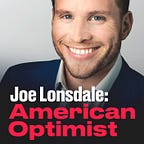The rich are getting richer, the poor are getting poorer. The wealthiest among us don't pay their fair share in taxes. The American Dream is disappearing... Are these claims true? What data are they based upon? And does it stand up to scrutiny?
This week, we analyze the debate over income inequality and mobility in America with economist and former U.S. Senator Phil Gramm. In his book, "The Myth of American Inequality" (winner of the 2024 Hayek Prize), Gramm lays out the oft-cited data for widening inequality and exposes where it falls short. According to the U.S. Census Bureau, the top 20% of earners possess 16.7 times the income of the bottom 20%. However, Gramm reveals that this data excludes nearly all government transfer payments to the poor, like food stamps, and fails to subtract the high taxes paid by top earners. Adjusting for these factors, inequality drops from 16.7X to 4X!
Gramm also points out that benefits to the poor have increased from $9,700 per household in 1967 (adjusted for inflation) to nearly $50,000 today. He argues that we suffer, not from extreme inequality, but from welfare-driven equality that encourages huge numbers of low-and-middle income Americans to drop out of the workforce.
Senator Phil Gramm served in Washington D.C. for 25 years, first as a Congressman and later as a three-term Senator from Texas. He's an economist by training who taught at Texas A&M before entering public service. His book is a must-read for understanding the inequality debate, the truth about the super-rich, and the state of the American Dream.
00:00 Episode intro
03:32 Is inequality extreme and growing?
10:45 Elon Musk and the super-rich
16:19 Is Warren Buffet cheating the government?
22:55 Industrial Revolution — setting the record straight
29:35 Do billionaires pay their fair share?
33:40 Is the American Dream dying?











